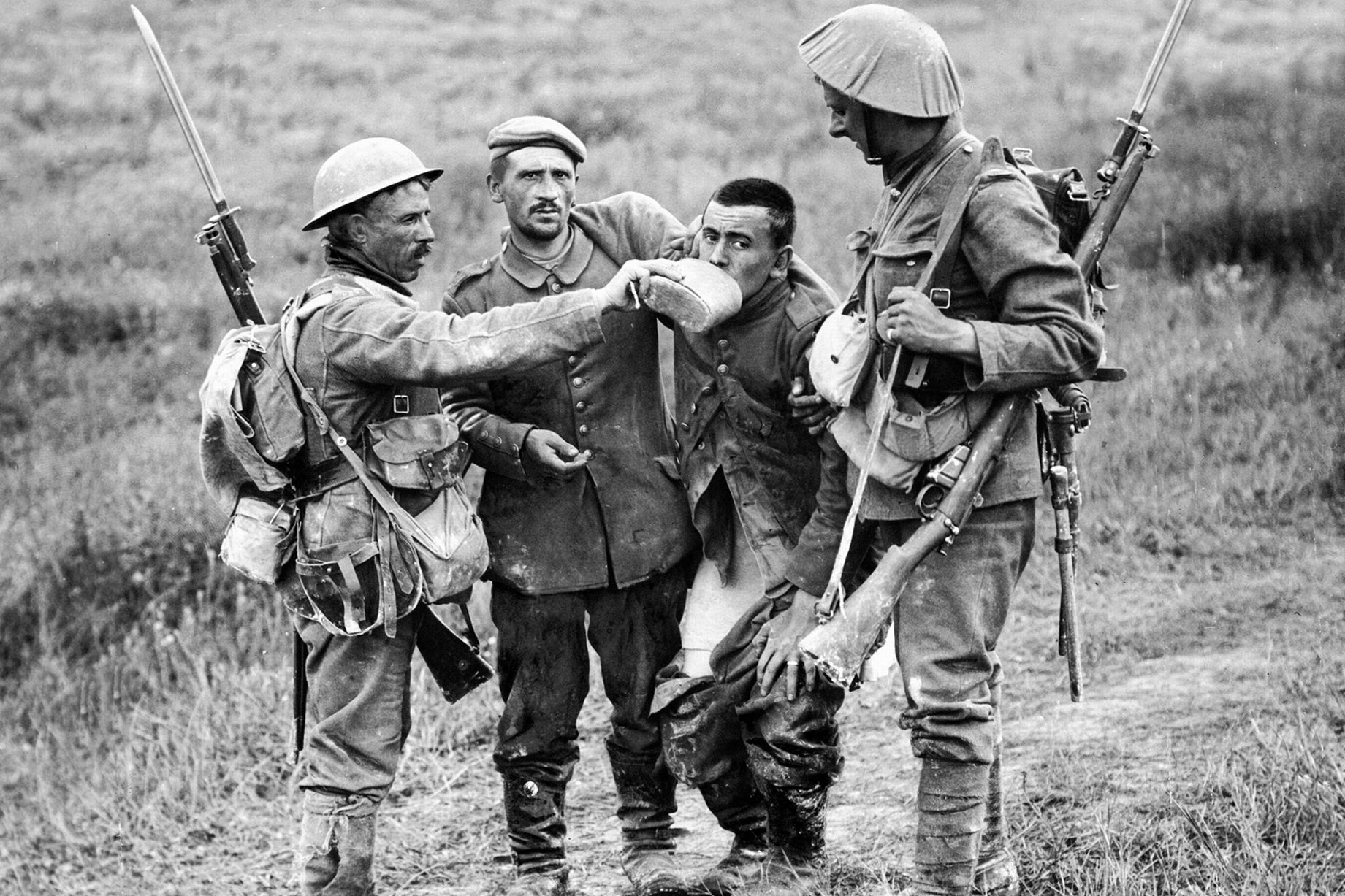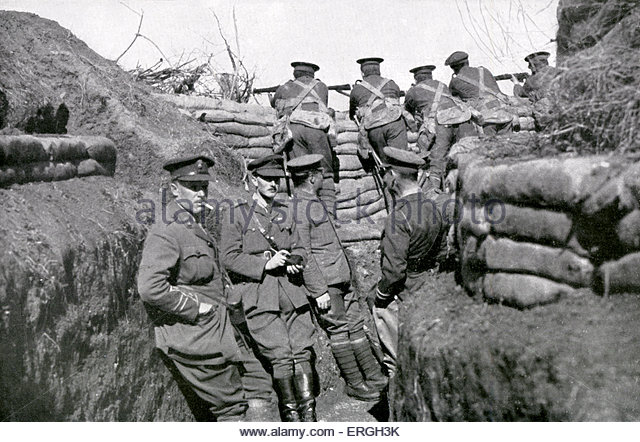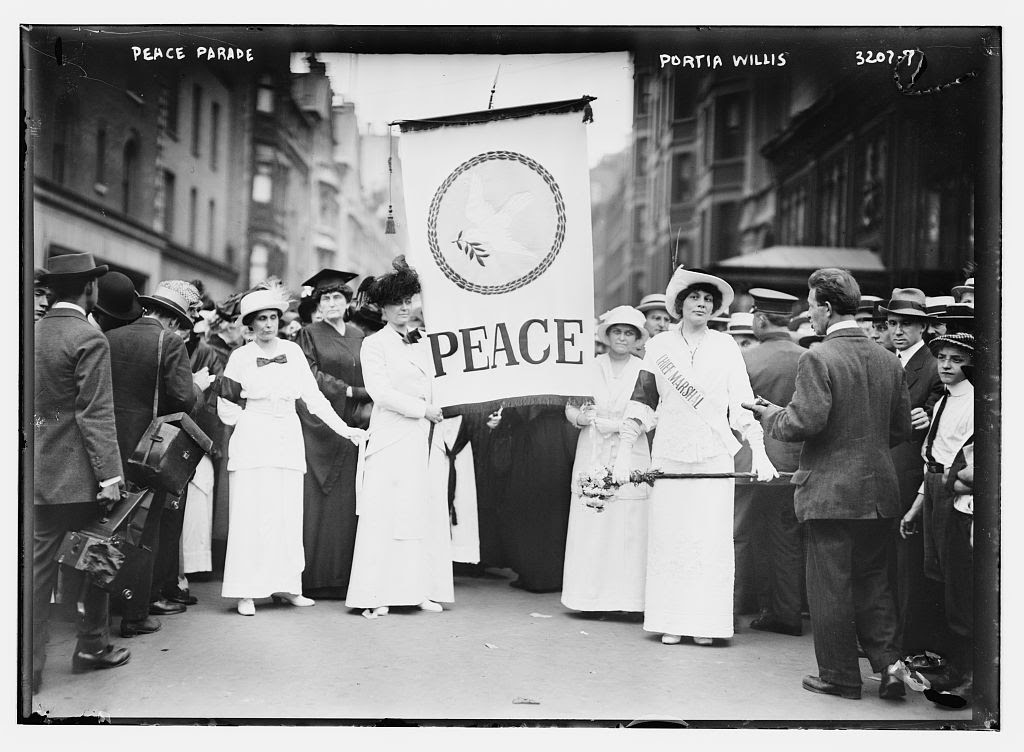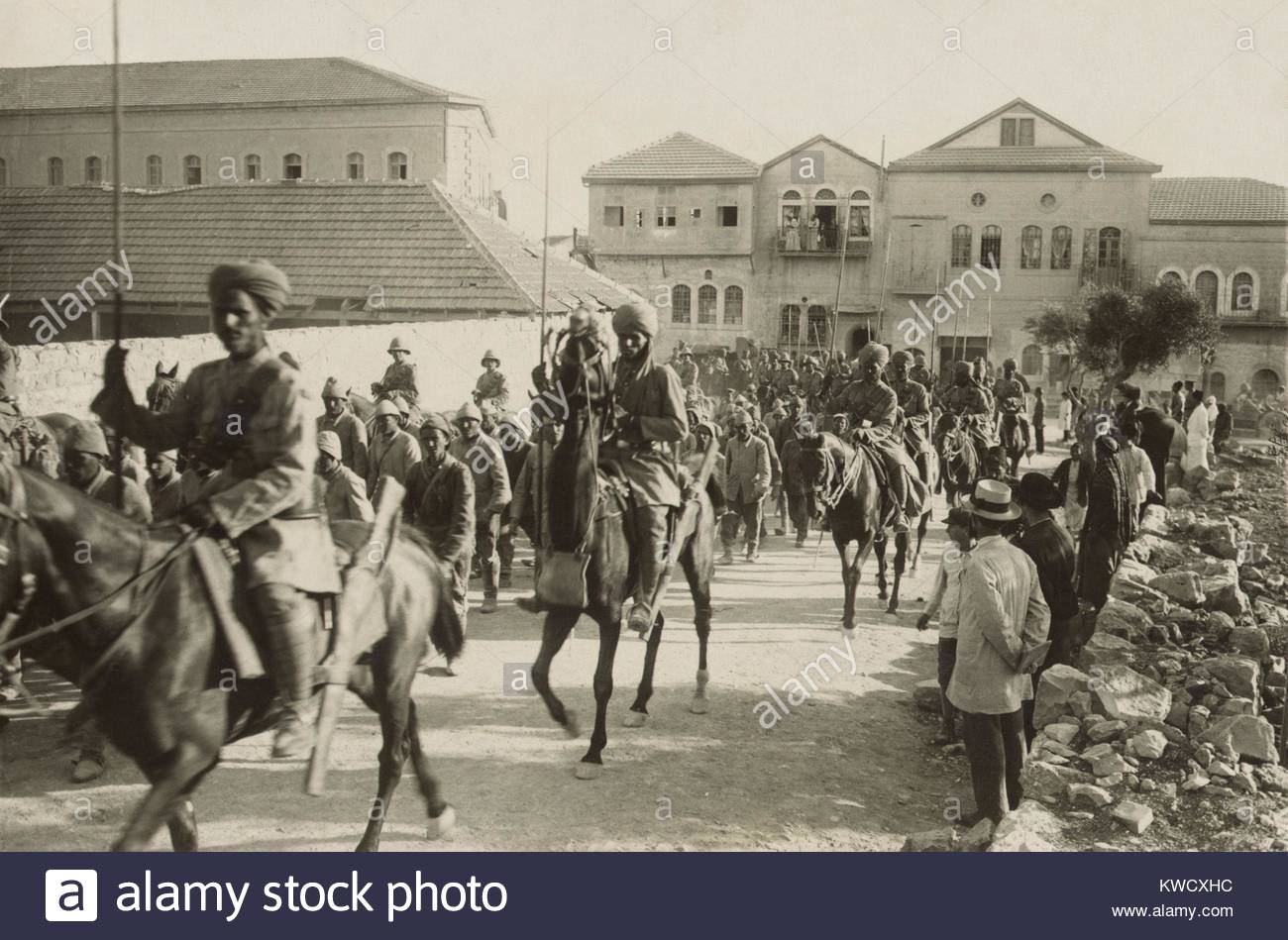The Allies Are Not Impressed. They Are on the Offense. Fighting Continues in the Balkans. And in the Middle East.
Special to The Great War Project
(24 September) In mid-September a century ago, fighting intensifies across the European fronts of the Great War.
At the same time, some are seeking a peace deal.

On Salonica Front, a thirsty German prisoner.
According to historian Martin Gilbert, an offensive begins on the Salonica Front, what is now Greece, and the Allies are in action against the Bulgarian army, an ally of Germany. Fighting spreads quickly against the Serbian army in the Balkans. Then in Macedonia and other Balkan territories.
In mid-September, 36,000 Serbs, French, and Italians are in action “against 12,000 Bulgars and Germans” who are not finished yet.
Reports historian Gilbert,
“So tenacious were the Bulgarian machine-gunners that the French used flamethrowers for the first time on the Salonica Front, to dislodge them, driving the defenders from three mountain peaks.”
But the Austrians and the Bulgarians show signs of weakening. “Two Bulgarian regiments mutinied on September 16th,” reports Gilbert. “They had no intention of fighting any longer.”

British troops in Salonica Front.
On September 14th “the Austrians asked the Allied powers and the United States to agree to a confidential and non-committal exchange of views to see if peace might be possible.”
This is a significant peace feeler, but it does not include the Germans.
“The United States rejected this invitation at once,” reports Gilbert, “Britain and France soon after.” The German government expresses its annoyance.
Writes Gilbert: “The war would go on, wearing down the life-energies of millions.”
Several days later, the Germans in the Balkans are in retreat, “all hope of holding the Balkans shattered.”
The southern approaches to the heartland of Germany and Austria are open to an allied advance.
But there is still much talk of a possible peace.
At this moment, reports historian Gilbert, “President Wilson rejected the Austrian request for peace talks.” So too does the French prime minister Georges Clemenceau the following day.

Support for peace in the US.
“A separate German peace offer to Belgium on the basis of no claims to be made by Belgium was rejected three days later.”
“On the Western Front the Allies continued to advance.” In the second half of September a hundred years ago, “the British Expeditionary Force took 30,000 prisoners, more than in any previous week of the war.”
And there was significant action once again in the Middle East. Intelligence seized by the Turkish leadership in Palestine indicates that plans for a Turkish offensive are underway.
The British counter with an offensive of their own. A British artillery bombardment begins on September 19th.
Reports Gilbert, “Then at dawn on the 20th the British resumed their northward offensive that had ended a year earlier with the capture of Jerusalem. Within a few hours, the British infantry had broken the Turkish defense lines, and British cavalry were advancing rapidly northward.”

British troops guard Turkish POWs in Jerusalem.
In two days fighting, the British take 7,000 prisoners. The Turks are demoralized and eager to give up the fight. Which is precisely what they do.
And back in Europe, the Allies, bolstered by a huge American contingent, have a plan of their own. But that’s the story for next time.
